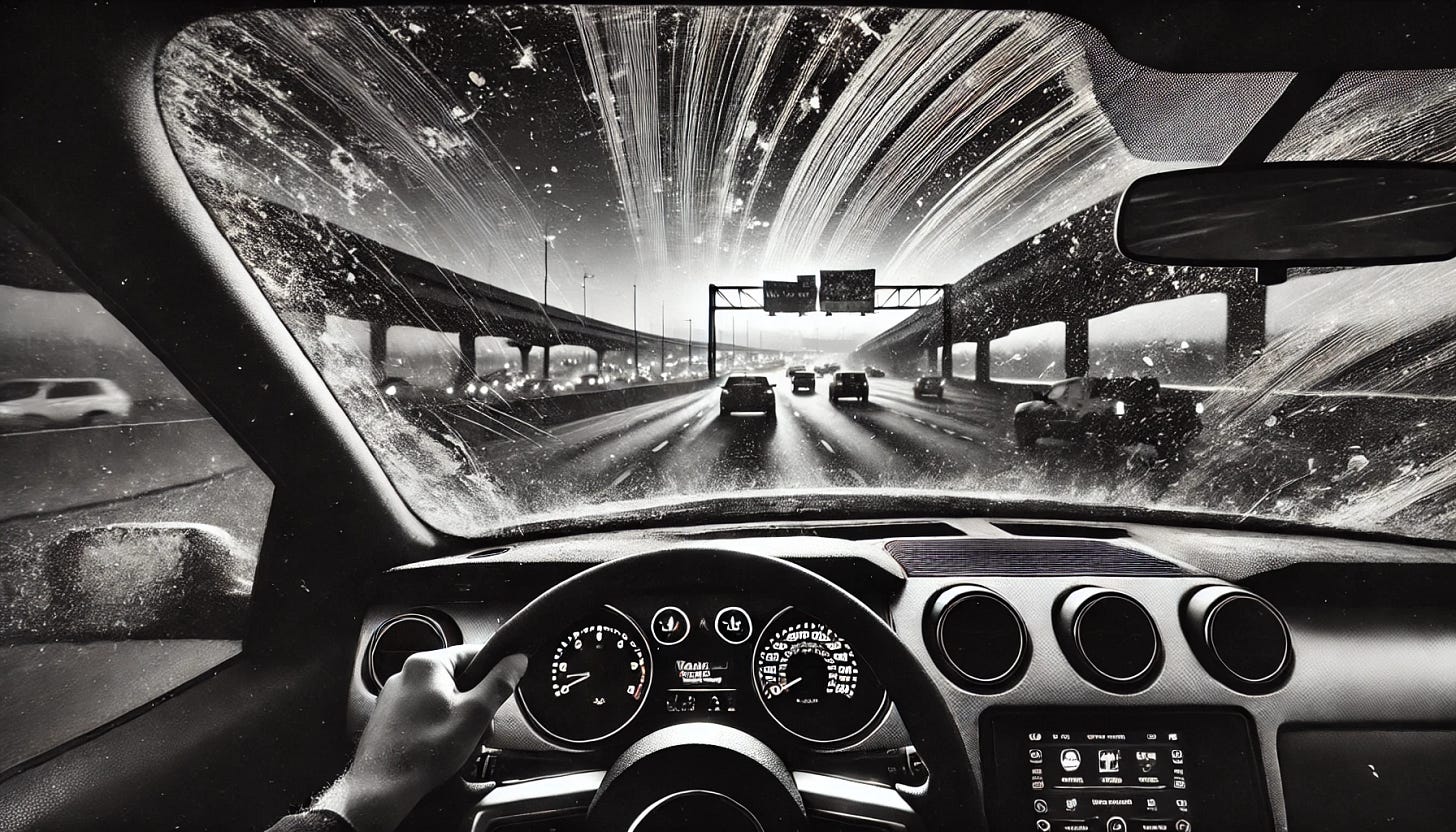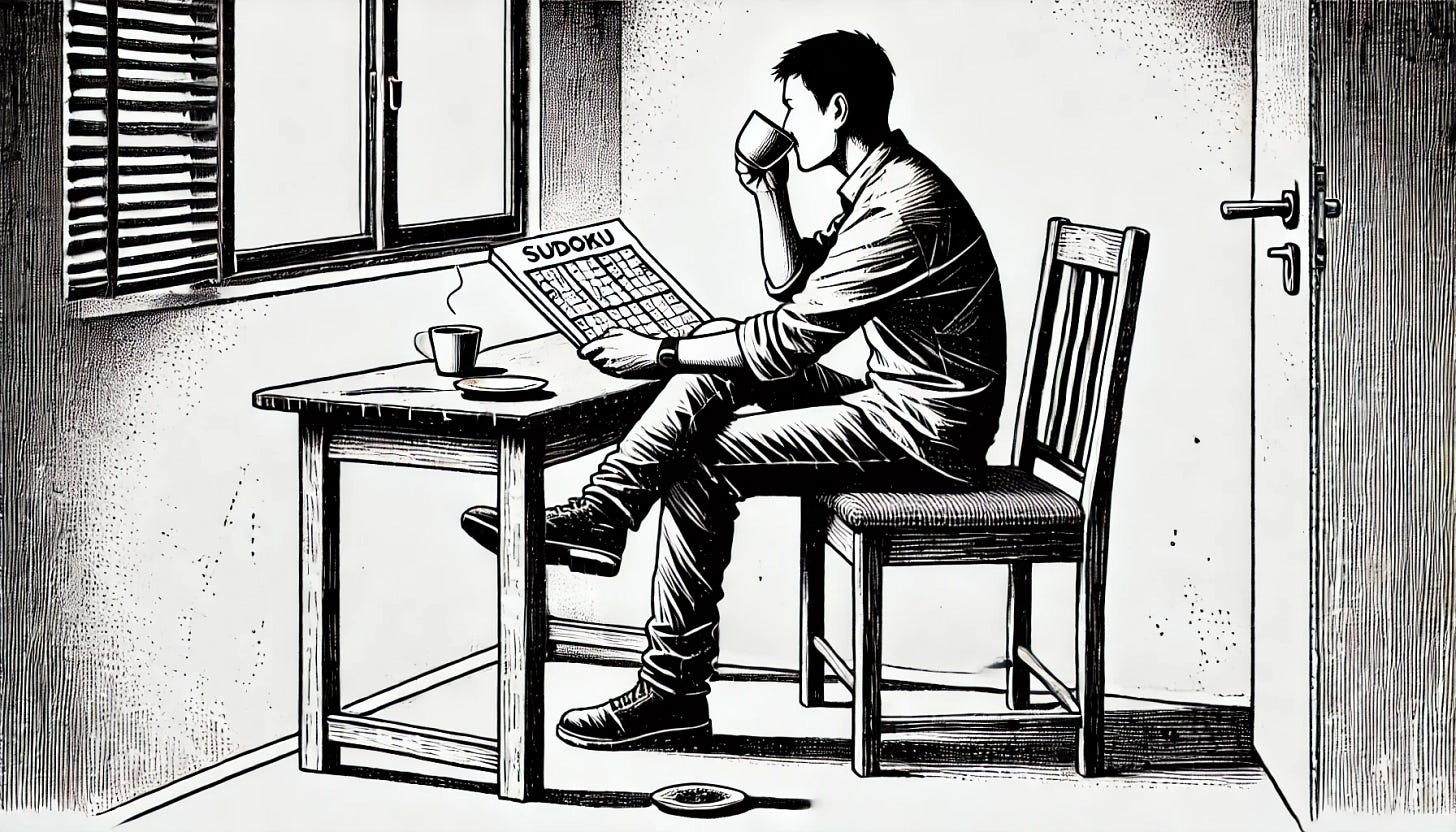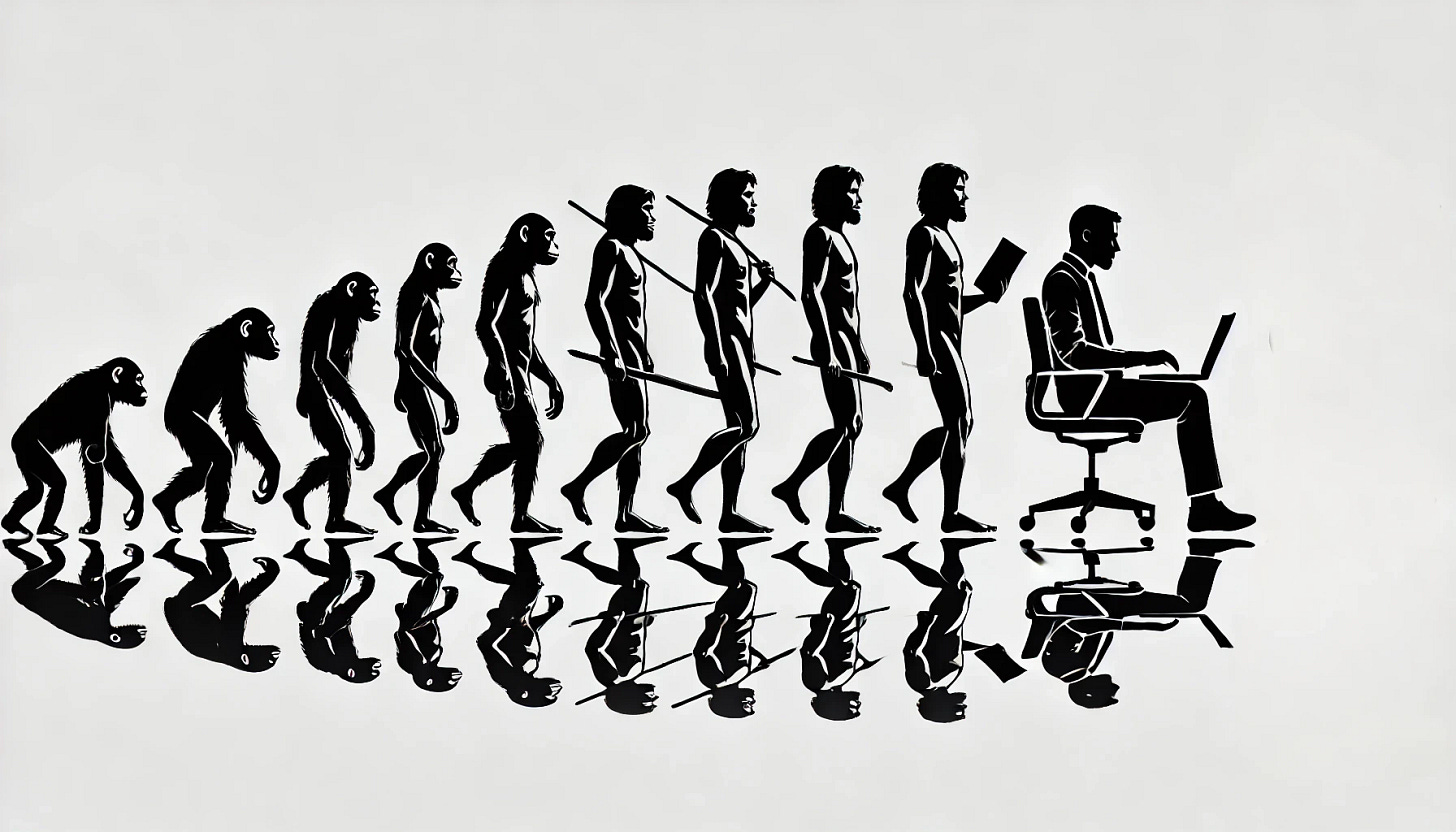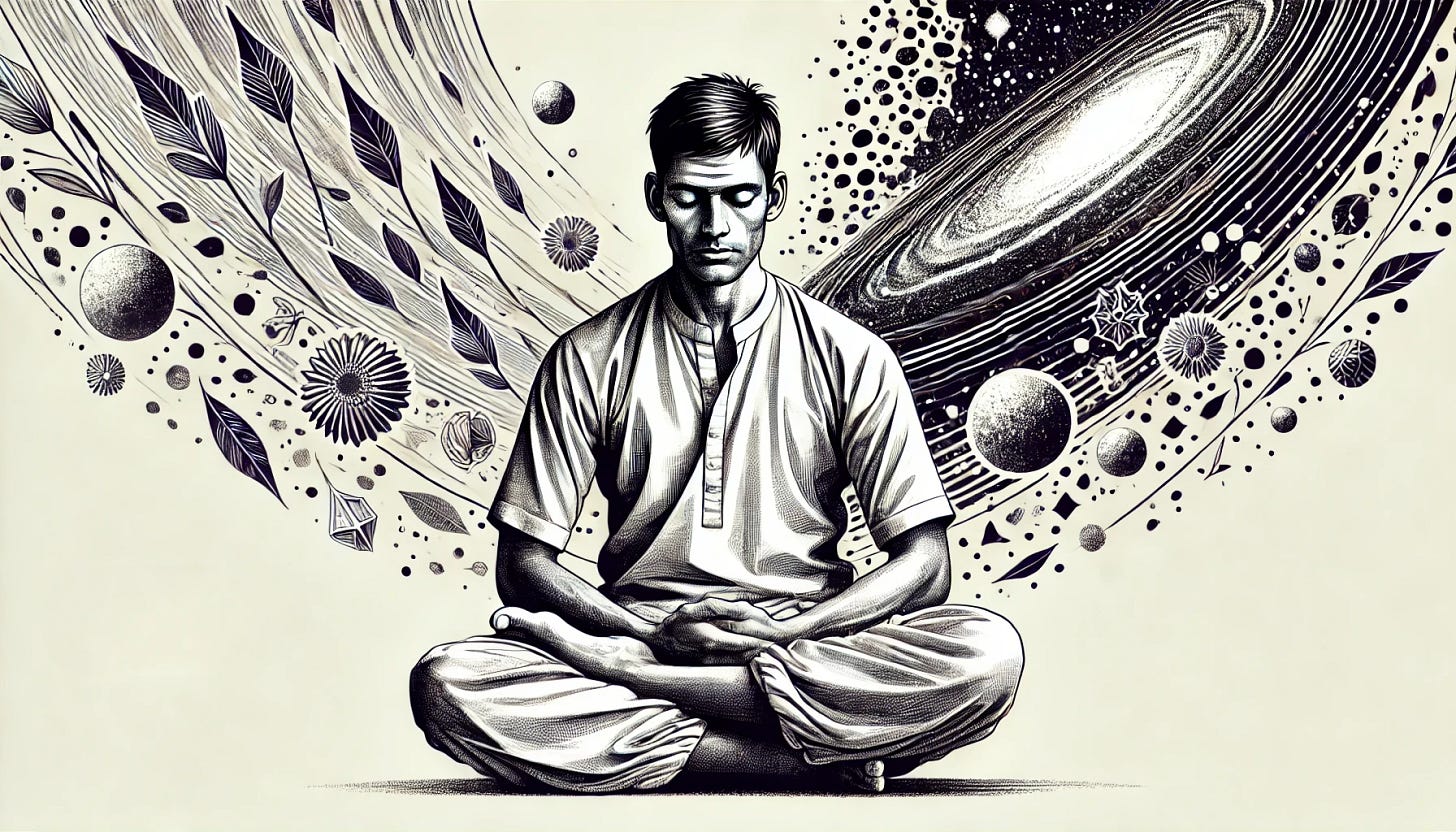Misconception
Sutra 8: Viparyayo mithyājñānam atadrūpa-pratiṣṭham — Misconception is false knowledge that is not based on the true nature of an object
The 8th Yoga Sutra from Patanjali’s Yoga Sutras deals with the second of the 5 forms of vrittis (mental modifications): misconception.
Misconception is false knowledge that is not based on the true nature of an object
It’d be easy to think: “misconception is the opposite of right knowledge” and be done with it, but there is value to be found by digging deeper into this idea. Maybe we can clear up any misconceptions we quietly have about misconception itself…ha.
— also, what tf is the “true nature of an object?” 👋 I’ll see you in the 🐇 🕳️
The first thing to recognize is that right knowledge and misconception are not a binary.
Both are forms of perceiving, one is clear and accurate, one is warped by some form of illusion or delusion.
Imagine gazing out your car’s windshield as you’re driving. Hopefully you aren’t looking at your phone like 90% of the world seems to prefer doing while operating heavy machinery. If so, your eyes are scanning the roadways for key information that informs the way your brain moves your arms and hands around to keep your vehicle moving in a way that (a) gets you where you need to go (b) doesn’t kill anyone in the process.
Now imagine that the windshield is super dirty and the sun is slanted right into your eyes. The roadway, and the information that viewing it can provide, has not changed. But the image of it being sent to your brain is different. You’re simply operating on worse information, and your decision making will necessarily be different.
You can squint and “look past” the obstructions, but really what your brain is doing in that situation is replacing the gaps in your perception with presumed information.
Now, the tricky thing here is that it’s totally possible to operate with high degrees of assumed information. Sometimes we operate on completely assumed information.
You can get away with it for a long time without running into issues. Even if you do get dinged now and again, it’s easy to make concessions like: “well, I didn’t see that coming!”
No shit! How could you have seen it if you were preoccupied with a literal figment of your imagination? That’s ultimately what presumed information is — what your brain imagines will happen based on whatever came before.
If you were seeing clearly before, and suddenly can’t for some reason (it’s dark, your view is obstructed) you have good odds at being right.
But your chances start to go down exponentially the longer you exist in a state of misconception.
When I first moved to San Diego, the windshield wipers on my old Volvo were already on their last legs. But since it rarely rained, I went months without noticing. Occasionally it would rain a bit and I could see how badly they were working, but as soon as I got out of the car I forgot all about it, and another few months would go by without a reminder.
Finally a good rain shower was on, and I found myself driving down the freeway at night not being able to see much of anything, despite my wipers whipping back and forth.
Since I’m a self-centered jerk, instead of pulling over and waiting for the rain to stop, I decided to risk my life, and the life of anyone unlucky enough to be in the way of my top-safety rated steamboat of a station wagon, should I end up losing my way.
I tuned into the information that was still available (some of which I previously ignored when I had full sight). Looking past the smudges, I could see the reflective lane markings on either side and red tail lights from the car in front of me. So I just kept myself between those markings on either side and focused on keeping the tail lights a few car lengths ahead.
It worked well enough, and I made it home. I wish I could say I changed the wipers right away, but being young, broke, and stupid has a way of delaying reasonable actions well past the obvious “do it now” moments.
The degree to which our lives follow set routines can help obscure misconceptions for long periods of time.
In today’s world, for long stretches of time all we really need to achieve in order to keep existing (earning money for food, at the most basic level) is moving our physical body out of bed and into some other context where we perform one task or another for a while. Driving is probably the most dangerous part of modern life, and even so we eventually feel completely unbothered by it since we do it every day. Why care if we carry around misconceptions about the way the world works?
Compare that to the hunter gatherers of yesteryear who had to make well-informed decisions on a daily basis in order to ensure their whole tribe wouldn’t freeze in the winter time. Seeing clearly on a moment to moment basis was crucial for basic survival.
Now, you could certainly point out that ancient peoples often made decisions based on things that we would call myth and misconception like “the sun god” & “prophecies” — or even believed they could influence the outcome of natural events with things like “rain dances”.
I’m definitely not here to present myself as a regressionist that thinks everything was better back in the good ol’ days of subsisting on berries and hunting down wild animals with sharp rocks.
It’s probably net better for the world that we aren’t constantly in a state of stress related to survival…but, oh wait…constant state of stress, you say?
Sounds a lot like what we’re currently discussing on a societal level about the impacts of technology and social media on the human psyche.
Either we’ve gone totally soft and are being unraveled by forces that our ancestors would theoretically have withstood, or maybe just not that much has changed about the way we perceive the world, while the world has changed significantly.
Perhaps the human condition in 2025 (localized to modern western societies at least) can be summed up simply as:
Brain complexity + Attention capacity 🟰 Similar or Somewhat Less
World complexity + Demand for attention 🟰 Exponentially More
Likely the best way to conceptualize our brains is as sense-making machines. Raw information arrives from the sense organs, and the brain arranges it into associated patterns, making predictions about what it perceives.
As you’re driving down the road, arguably you’re never actually “seeing everything”. Since your brain is busy processing the new information that’s arriving (based on the pace you’re moving) it quickly shifts focus to areas that haven’t been processed yet, leaving areas determined as a “not a threat” to pass by.
Overall, it’s a good thing that our brains function this way. Filtering through all the raw information we receive is a very good thing for being able to move through the world and determine what’s food and what’s not, never mind do things like drive. If you had to individually process every unit of information that arises in your field of awareness, you’d probably spend most of your life learning how to move one finger.
I think the thing to consider is that, over time, two inter-related things have happened/not happened:
We’ve collectively become much better at predicting the world (i.e. weather algorithms, Google Maps, grocery store supply chain)
Individually we remain trapped in our subjective experiences of the world (I do not personally know how to predict the weather)
We “know” the weather because we move our thumbs on a piece of glass in our pocket and it shines symbols that carry agreed upon meaning to our prefrontal cortex.
We “know” the fastest way to get to work because the little arrow on the piece of glass in our car shows us the way.
We “know” that we’ll have enough food because Google Maps knows where the grocery store is, and we have a credit card.
Generally, all we seem to “know” now is the “user experience” of life.
That’s just a layer installed over the base.
We can obtain such incredibly vast amounts of second and third degree information on just a whim, that tuning into the raw information underlying it all just seems boring and unimportant.
And we simply accept whatever new form of interface is presented to us from modern manufacturers. The highest cognitive load we face is figuring out where they moved the damn back button.
In these spaces (which, mind you, we do have to occupy to participate in the development of the world/society), we have a deluge of these “things” vying for our attention at all moments of every day.
Ding! Earthquake in Taiwan.
Ding! High school ex got pregnant.
Ding! Trump blinked.
Ding! Trump blinked, again.
Ding! Boss needs something.
Ding! Kids need something.
Ding! Ding! DING!
— I totally get that people just want a way out of this state of harassment.
Drugs work for a short while. Imagination and projection can too. Nihilism, hedonism, and stoic acceptance of our condition come and go.
We tend to look without for our solutions…
But, to borrow phrasing from a musician I support,
The way out, is in.
When those ding ding dings begin to overwhelm, drive your awareness into their true nature.
It’s actually just a sound happening near you.
The information it can convey, should you choose to engage with it, is secondary.
The sound exists in your field of awareness in the same way a soft breeze arrives and departs by its own accord. The same way your breath does.
It can feel impossible to clear the muddied windshield of our awareness, especially when we notice that the moment after we move the wiper across it, another obstruction arises. And over time, the wipers stop working well.
So practices like yoga can be approached like a chance to change out those old wiper blades and reset the awareness down into the substrate of our experience. To drop out of the state of misconception that we quietly ignore most of our lives, and improve your odds of making better choices.
Find the breath, follow it, and stay with it. When practicing, all the things that try pull you away from it simply serve to strengthen your mental discipline and capacity for discernment.
Ultimately, your experience of life will be a function of which appearances with which you choose to engage.
If free will exists, certainly it is on the mat that we can cultivate it.







